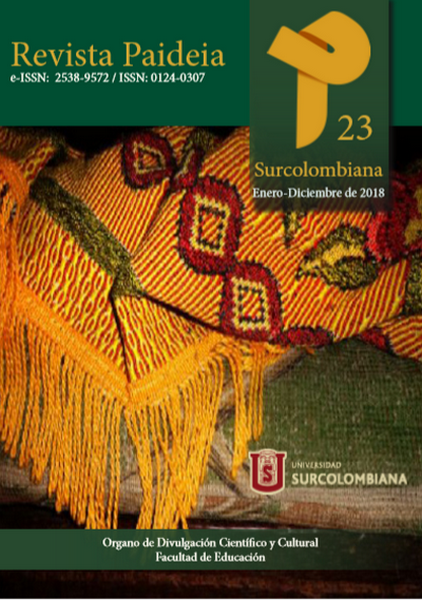Didactic units as a strategy to strengthen scientific competence explanation of phenomena
##plugins.themes.bootstrap3.article.main##
The present investigation was carried out with students of the sixth grade of the Educational Institution of Our Lady of Carmen in the subject of Biology. The proposal was born from the analysis of the SABER 2016 tests according to ICFES (2016) of grades 5 and 9, which allowed observing weaknesses in the area of Natural Sciences. These weaknesses were marked by low results in the explanation of phenomena, so it was determined to use didactic units as the strategy to strengthen this competence.
An action research methodology with a qualitative approach was used. The development of the research began with a diagnostic test that allowed to determine the initial state of the students for the explanation of phenomena competence.
Two didactic units were implemented under the theme of cellular functioning. Each of these units was developed through printed guides using role play activities, analogies, cause and effect relationships, modeling and experimental activities.
As a result of the implemented strategy, it was possible to strengthen student modeling, cause and effect relationships and student motivation.
It can be concluded that the use of teaching units allowed for the strengthening of the competence explanation of phenomena in the students of the educational institution Nuestra Señora del Carmen.
Downloads
##plugins.themes.bootstrap3.article.details##
Bernal, C (2010). Metodología de la Investigación. Editorial PEARSON. Colombia.
Blanco, P (2017). Análisis del nivel de desempeño para la explicación de fenómenos de forma científica en una actividad de modelación. Disponible en https://revistas.uca.es/index.php/eureka/article/viewFile/3158/3192 Fecha de consulta: 23 de Octubre de 2017
Gallego, D (2014). Unidades didácticas: Un camino para la transformación de la enseñanza de las ciencias desde un enfoque investigativo. Memorias, sexto congreso Internacional sobre formación de profesores de ciencias. Bogotá. Disponible en revistas.pedagogica.edu.co/index.php/TED/article/download/3460/3055. Fecha de consulta: 17 de Noviembre de 2017
Instituto Colombiano para el Fomento de la educación Superior (2017). Resultados pruebas SABER 3,5 Y 9. Documento en línea. Disponible en http://www2.icfesinteractivo.gov.co/ReportesSaber359/consultaReporteEstablecimiento.jspx. Fecha de consulta: 20 de Octubre de 2017
Latorre, A (2003). La investigación acción: conocer y cambiar la práctica educativa. Barcelona: Grao. Disponible en https://www.uv.mx/rmipe/files/2016/08/La-investigacion-accion-Conocer-y-cambiar-la-practica-educativa.pdf. Fecha de consulta: 17 de Noviembre de 2017
Quintanilla, M (2010). Unidades didácticas en biología y educación Ambiental. Colombia. Disponible en: http://www7.uc.cl/sw_educ/educacion/grecia/plano/html/pdfs/destacados/LibroDBioGrecia.pdf. Fecha de consulta: Fecha de consulta: 17 de Noviembre de 2017.














